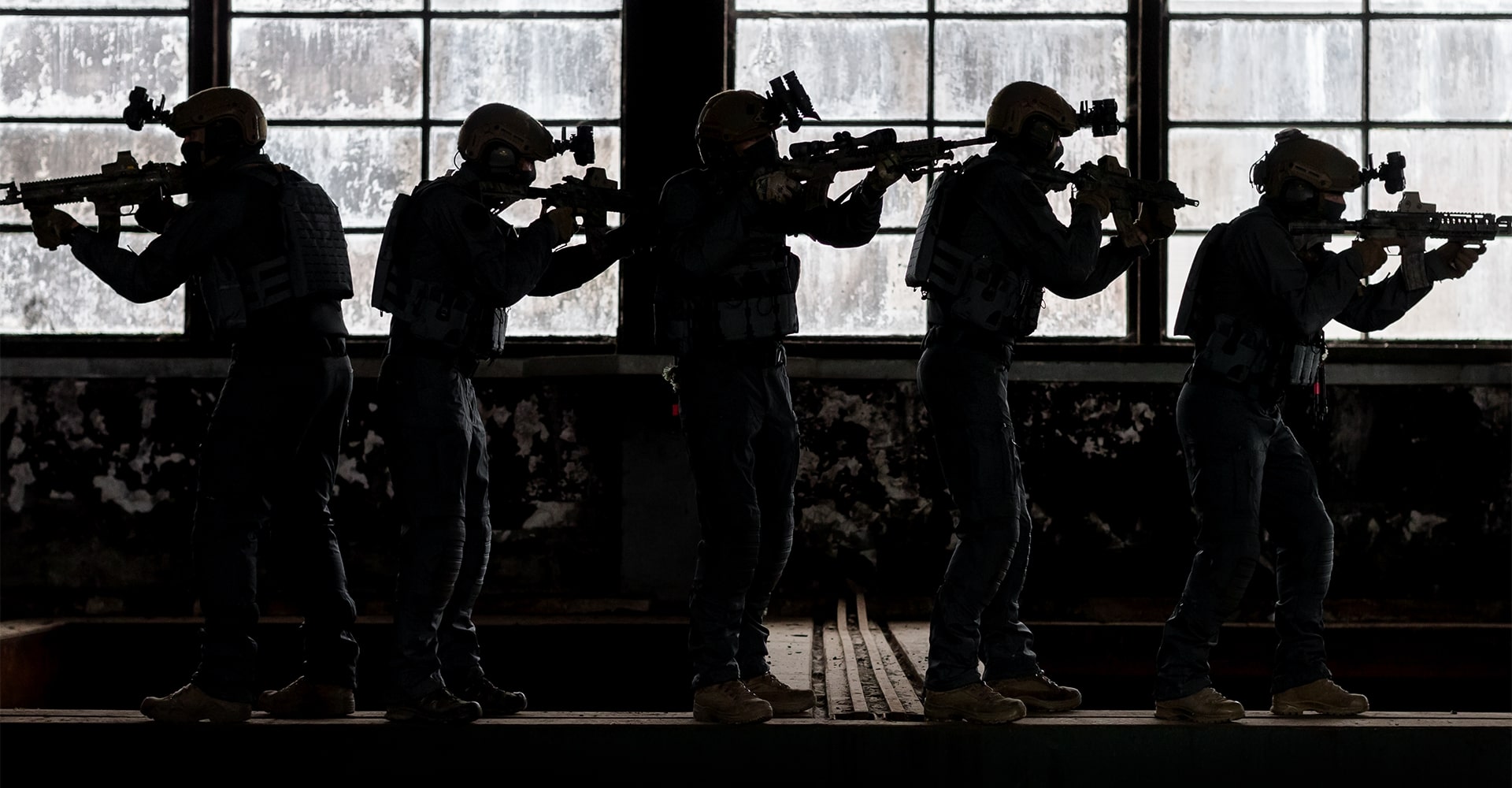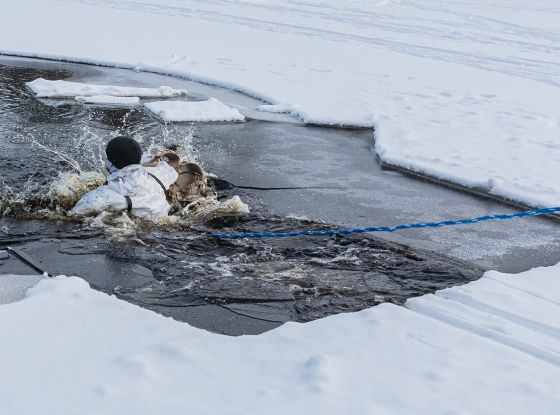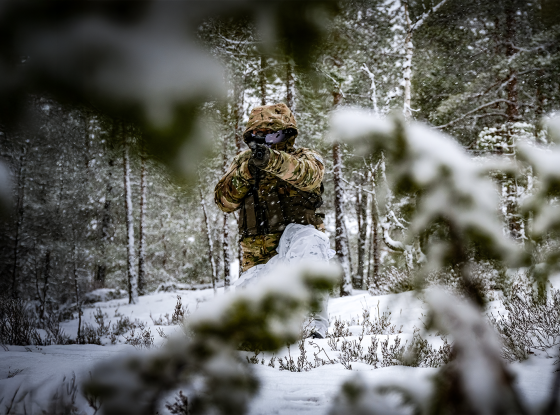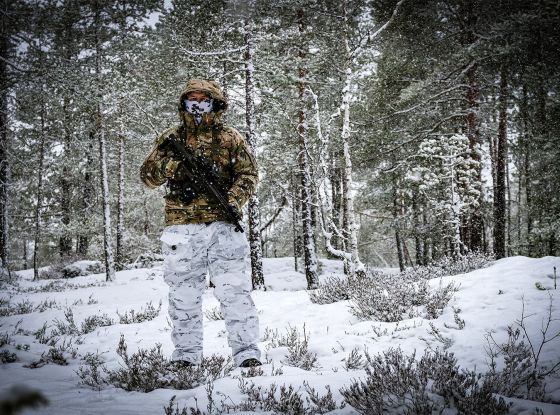“Mama says I am special,” is a phrase often tossed around in jest. But for those who enter the world of special forces, the word ‘special’ takes on a whole new meaning. These operators aren’t defined by their titles—they are the backbone of elite military forces, prepared to take on the impossible. They are the few who are truly special, trained to execute high-risk, high-stakes missions under the most extreme conditions. In this guest blog post, Jürgen Hatzenbichler, a journalist from Vienna, Austria, and Editor of spartanat.com, delves into the unique world of Special Forces. He explores the training, the gear, the mindset, and the dedication that define these elite units. From high-risk missions to the relentless drive for self-improvement, this post uncovers the core elements that make Special Forces distinct in today's dynamic battlefield.
In this blog post:
- The Unique World of Special Forces
- Special Forces Don’t Fit into Military Norms – and That’s Their Strength
- Inside the World of Elite Operators: From GSG 9 to Ukraine's Special Forces
- A Culture of Operators
- The Training of Special Forces Operators: A World of Extremes
- Special Forces: The Ultimate High-Value Tool
- The Broad Spectrum of Special Forces Missions
- Conclusion: Who Dares, Wins
Author: Jürgen Hatzenbichler
The Unique World of Special Forces
Alex served with the Kommando Spezialkräfte (KSK) of the Bundeswehr, Germany’s elite special forces. A seasoned officer from the early days, he remains active today. When we ask him what special forces are, his response is straightforward:
“Highly trained, capable, and resilient fighters for exceptionally specialized missions and tasks.”
Ulrich, however, hails from the world of police special forces, specifically the Grenzschutzgruppe 9 (GSG 9). For him, special forces are:
“Tactical units capable of handling complex, life-threatening situations, combating terrorism, organized crime, and operations that would overwhelm a regular police officer.”
Gustav offers a broader explanation. A former German engineer sergeant, now serving in Ukraine’s special forces, Gustav has seen the brutal realities of war firsthand.
“Special forces are units tasked with unique missions that regular forces cannot execute, or they tackle regular missions using unconventional methods. These units are specifically trained for such roles.”
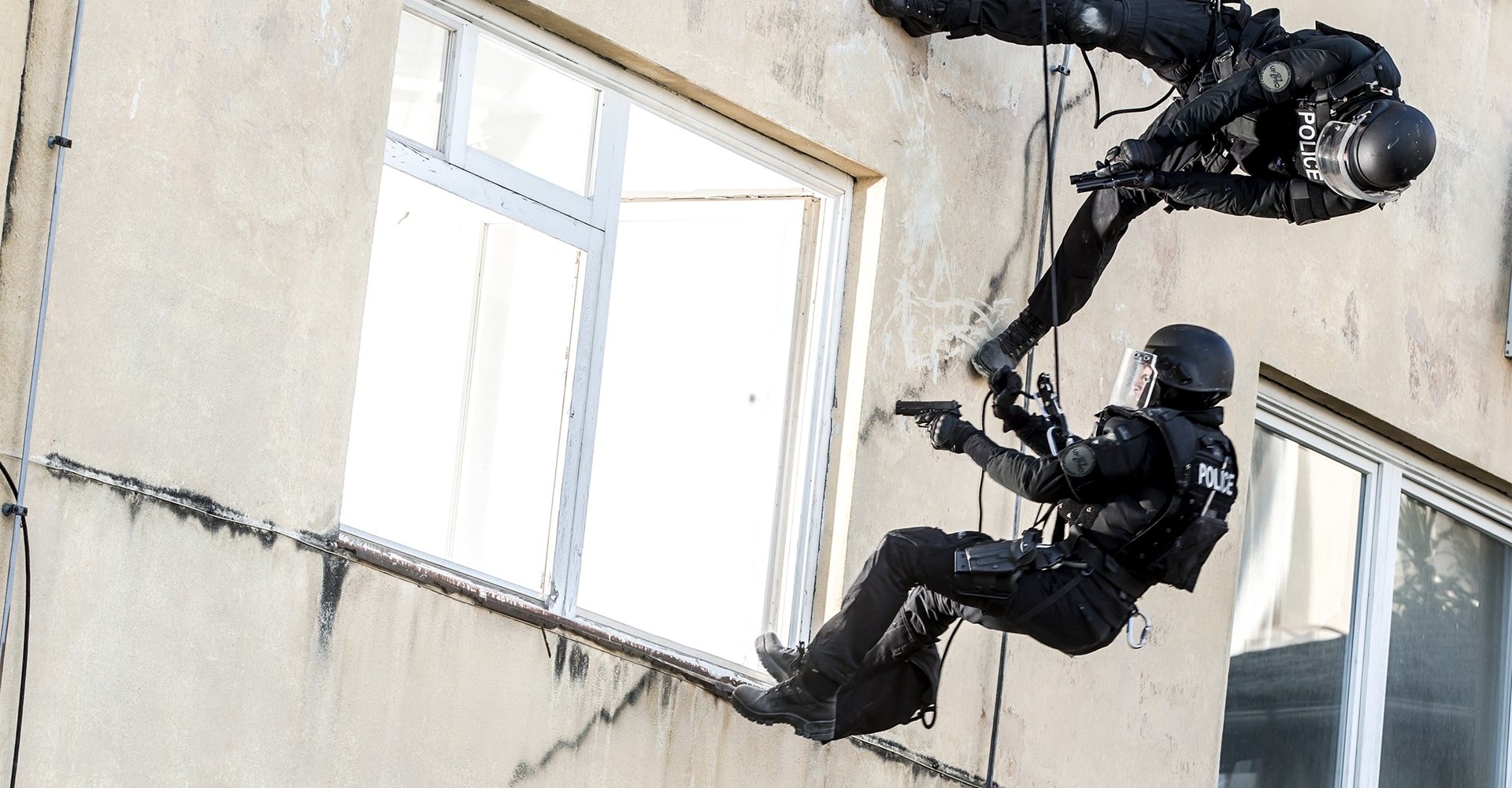
Special Forces Don’t Fit into Military Norms – and That’s Their Strength
For Nemo, a German Navy officer and combat swimmer, the very concept of special forces seems at odds with conventional military structures. “The military is about structure, equality—attempting to bring order to the chaos of war,” he explains. “Even basic missions without direct combat require intricate procedures and constant order.” In contrast, special forces operate outside these boundaries, thriving on adaptability, creativity, and asymmetrical thinking.
He points to the American Revolutionary War as an early example of how rigid formations dominated traditional strategy, while more agile and unconventional tactics gradually gained ground. Modern special forces as we know them emerged much later. Pioneering units like the British Special Air Service (SAS) and Special Boat Service (SBS) laid the groundwork for today's special operations, demonstrating the impact of unorthodox warfare and influencing military doctrine at the highest levels. Leaders such as Roger Courtney and David Stirling proved that success in unpredictable environments required operators who didn’t just follow orders—but thought beyond them.
Inside the World of Elite Operators: From GSG 9 to Ukraine's Special Forces
Germany’s special forces have long operated in the shadows—elite, disciplined, and trained for missions that rarely make headlines. Over the decades, these units have not only shaped Germany's counter-terror and rapid-response capabilities but also inspired admiration and emulation abroad. Today, their influence extends beyond borders, resonating in places like Ukraine, where modern warfare demands both tradition and innovation.
Germany’s Path to Modern Special Operations
Germany’s own evolution in special operations began with its oldest special forces unit: the German Navy’s combat swimmers, founded in 1959. Designed to operate on land and at sea, the unit embodied the same nonconformist spirit that defines special forces globally. A pivotal milestone came when the unit adopted airborne capabilities—parachuting from the air into water—based on methods used by France’s elite "Commando Hubert." This innovation helped shape the formation of Germany’s modern Special Operations Forces (SOF).
On April 1, 1964, the combat swimmers were reorganized into an independent unit, the Amphibious Group of the German Navy. By the 1970s, they had established their base in Eckernförde. Starting in 1975, a groundbreaking exchange program with the U.S. Navy SEALs allowed both units to share tactics, gear, and operational knowledge. This collaboration not only elevated Germany’s special forces capabilities but reinforced a core truth: special operations succeed by embracing difference—not conformity.
The Genesis and Legacy of GSG 9
In the wake of the tragic events at the 1972 Munich Olympics, where nine Israeli athletes were killed during a botched rescue attempt, Germany recognized the urgent need for a specialized counter-terrorism unit. Lieutenant Colonel Ulrich Wegener, then a liaison officer at the German Federal Ministry of the Interior, was tasked with establishing this force. By April 1973, GSG 9 was operational, and its capabilities were soon put to the test.
The unit's defining moment came in October 1977 during the hijacking of Lufthansa Flight 181, known as the "Landshut" incident. Four Palestinian militants had seized the aircraft, demanding the release of imprisoned Red Army Faction members. After a tense five-day ordeal, GSG 9 commandos stormed the plane in Mogadishu, Somalia, successfully rescuing all 91 hostages without any fatalities among passengers or the rescue team. This operation not only showcased GSG 9's effectiveness but also cemented Wegener's reputation, earning him the moniker "hero of Mogadishu."
Reflecting on what defines a GSG 9 operator, Ulrich emphasized the importance of commitment: “The will to be an operator and to want to live it… to face challenges every day and to be willing and able to go beyond your mental and physical limits.” He believes that being an operator is not just a role but a personal vocation, requiring individuals to adjust their lives entirely to meet the demands of the unit.
SUBSCRIBE TO UNLOCK OUR EXCLUSIVE CONTENT
Enter your email and get timely updates and relevant intel on tactical topics directly to your inbox.
You are signing up to receive updates via e-mail from which you can opt out at any time. Visit our privacy policy for more info.
The Dual Nature of Special Forces: Police and Military Roles
Germany’s GSG 9 is a prime example of how special forces can straddle both police and military domains. Created after the Munich Olympic hostage crisis in 1972, GSG 9 was initially part of the Border Guard (BGS) and has since become an elite counter-terrorism unit within the Federal Police. Ulrich, a member of GSG 9, explains, “Police units have always had a military structure. The distinction between police and military special forces isn’t as clear-cut as many think.”
While the military focuses on combat, police special forces like GSG 9 are tasked with civilian threats. Their responsibilities include counter-terrorism, hostage rescue, and specialized police work—showing how special forces can seamlessly transition between military and law enforcement roles, as needed.
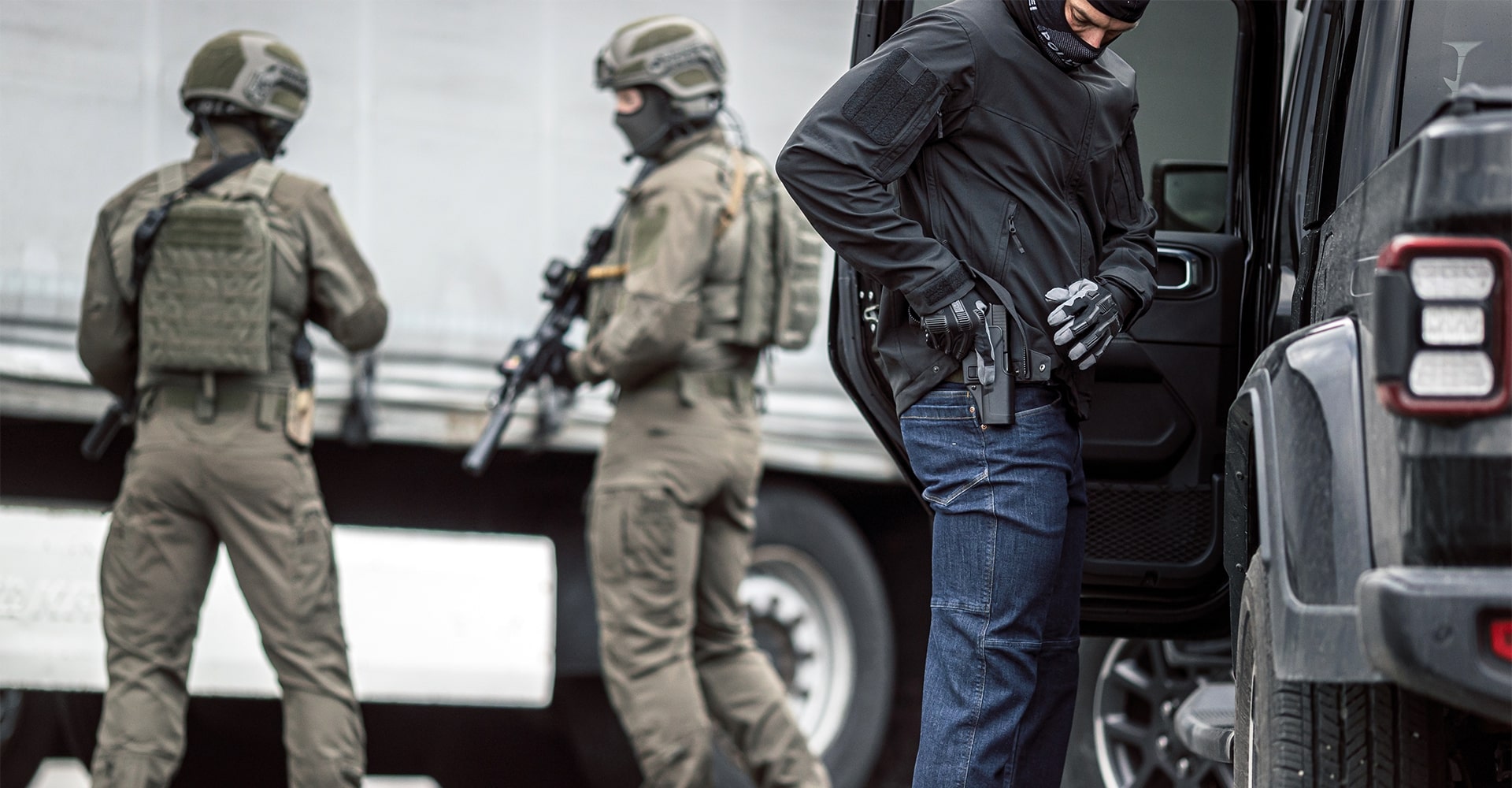
Evolution of German Special Forces: The KSK
Two decades later, Germany's focus on elite capabilities expanded from counter-terrorism to global military deployments. The establishment of the Kommando Spezialkräfte (KSK) in 1996 marked Germany’s commitment to developing a rapid-response military unit capable of handling complex international missions. The formation of KSK was largely prompted by the logistical and operational challenges faced during the Rwanda crisis, where Germany lacked the ability to evacuate its own citizens efficiently.
The KSK was modeled in part after the British SAS, and from the beginning, it attracted individuals with combat experience and tactical insight. As one of the early members, Alex, noted: “Why reinvent the wheel when there are already some who are doing an excellent job?”
The KSK's mission encompasses reconnaissance, surveillance, and the rescue of German citizens in crisis zones. Over time, its role has expanded to include a wide range of unconventional warfare and high-risk operations. However, the unit has also faced internal scrutiny—criticized at times for a culture of elitism and ideological drift. In response, reforms have been implemented to strengthen oversight and reinforce democratic values within the force.
Ukrainian Special Forces: A Blend of Traditions and Innovations
Nowhere has the spirit of adaptation been more evident than in Ukraine, where the conflict has forged a new generation of special operators. Among them is Gustav, a former German army non-commissioned officer who joined Ukraine’s International Legion. “You see all kinds of experience here,” he says. “Some guys trained with MARSOC, others with Finnish or Baltic forces. It’s a mix—but it works.”
Ukrainian special forces operate with an eclectic mix of doctrines, drawing from NATO-aligned countries while responding to distinctly local challenges. Drone warfare, for instance, has become central to operations. The term “drone operator” now often refers to UAV pilots—an evolution of the word that reflects today’s battlefield.
Interestingly, in Ukraine, the term “operator” is sometimes reserved for those with Western special forces backgrounds, carrying a kind of informal prestige. But the war has democratized that identity: frontline experience, not pedigree, defines your value.
As the war grinds on, Ukrainian special forces increasingly resemble the future of asymmetric warfare—lean, tech-enabled, and highly decentralized. Their adaptability underscores a broader lesson for all special units: peacetime is no excuse for complacency. Preparation never stops.
Rethinking the Future
Germany’s special forces—whether GSG 9, KSK, or their counterparts in Ukraine—face a world that no longer plays by conventional rules. Surveillance, drones, cyber capabilities, and AI are rewriting the operational playbook. The elite units of today must train not only harder but smarter, ready to adjust on the fly.
But through all these changes, one thing remains constant: the essence of what it means to be an operator. It’s not the uniform, the patch, or the mission set—it’s the mindset. And whether storming a hijacked plane in Somalia or flying a reconnaissance drone over eastern Ukraine, that mindset is what continues to define the world’s most elite forces.
A Culture of Operators
What makes someone suited for special forces? We asked Nemo, a combat swimmer officer, and he pondered before answering, “It takes individuals who, willingly and voluntarily—because diving in the German Navy is always voluntary—are highly self-motivated, with a strong desire to serve.” He continues: “You need people with strong character and problem-solving abilities. They must be adaptable and excel in their basic skills, as these individuals are ‘brilliant in the basics.’ This enables them to be effective in both leadership and team-based roles.”
Veterans often describe a mindset more than a skill set.
This mindset mirrors Wegener’s earlier philosophy. Both GSG 9 and KSK demand more than physical excellence—they require psychological resilience and the ability to operate independently, often with incomplete information and extreme pressure.
To be truly prepared for special forces operations, one must develop not just physical endurance but also the right mindset. We dive deeper into this in our blog post Special Forces Mindset: How to Prepare, which explores how mental conditioning is as critical as physical training when preparing for elite missions.
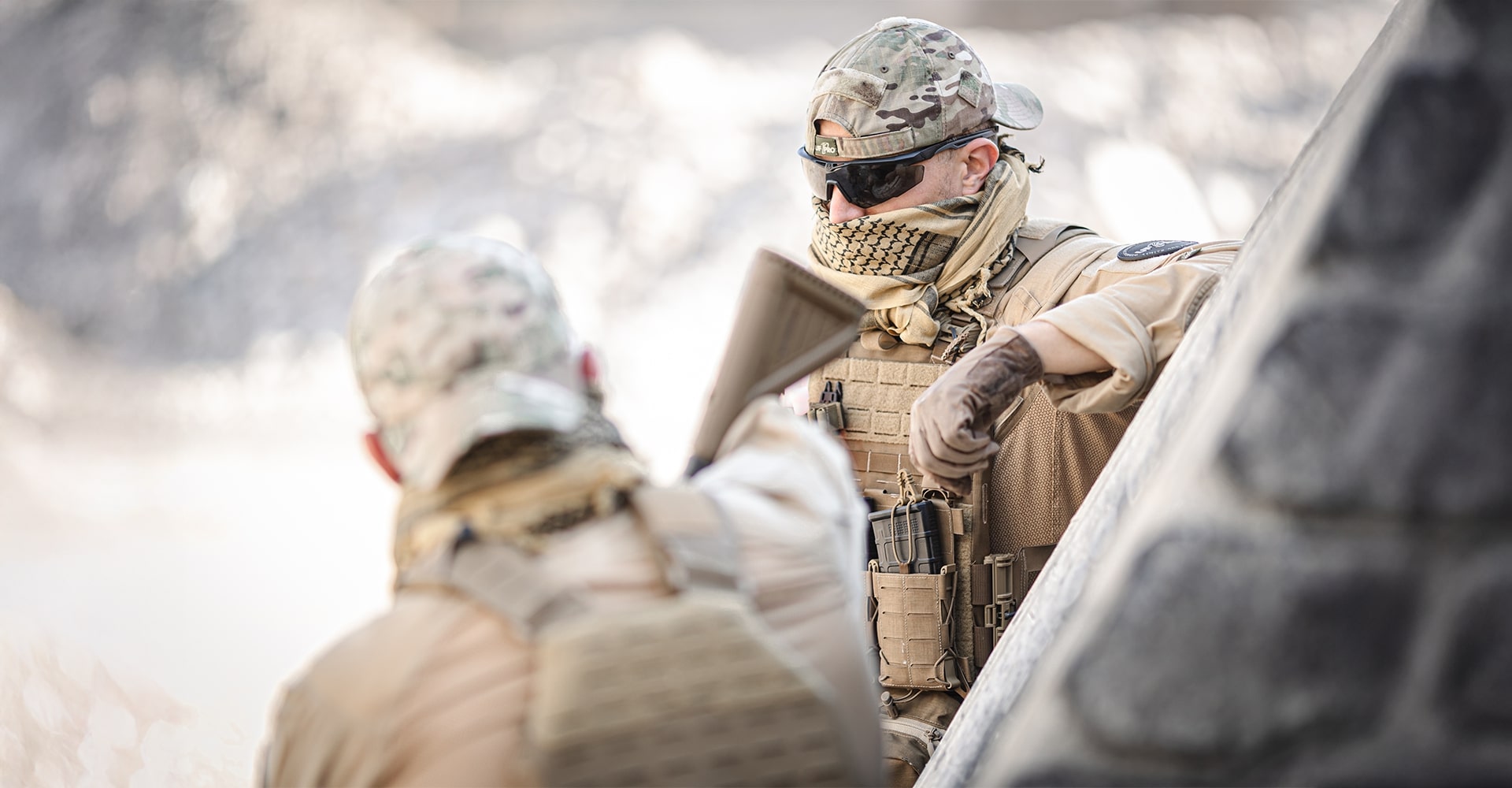
The Training of Special Forces Operators: A World of Extremes
Special forces operators are trained to perform in the harshest conditions imaginable—both physically and mentally. Their training spans the full spectrum of environments: Arctic cold reaching -30°C, desert heat soaring above +40°C, and jungle humidity climbing past 90%. Operators are expected to perform in all of them. Endurance is key—running 5,000 meters in under 20 minutes, swimming distances up to 30 kilometers, and carrying loads exceeding 60 kilograms is often baseline, not the exception.
Elite units also undergo advanced airborne training. Techniques like HALO (High Altitude, Low Opening) and HAHO (High Altitude, High Opening) demand not just courage but incredible precision and stamina. In HALO, operators jump from altitudes above 10,000 feet and open their parachutes close to the ground to minimize detection—essential for stealth operations behind enemy lines. HAHO, on the other hand, involves opening the parachute shortly after the jump, enabling operators to glide silently over long distances. Both methods require high-altitude acclimatization and exceptional control under pressure.
To understand how elite forces stay ready for this wide range of challenges, we explore evolving training methods in our blog post: Special Operations Forces: Future Training.
But physical conditioning is just one side of the coin. Mental resilience is equally critical. Special forces operators are trained to act under enormous stress—drawing and firing a weapon in under a second, distinguishing friend from foe instantly, and executing complex tasks with little sleep or oxygen, sometimes over days. The ability to stay calm under fire, process information rapidly, and make life-or-death decisions in the blink of an eye separates those who pass from those who don’t.
This level of readiness doesn’t happen overnight. It’s cultivated through a grueling selection and preparation process, one explored in greater detail in our blog: Special Forces Selection Process: How to Get In.
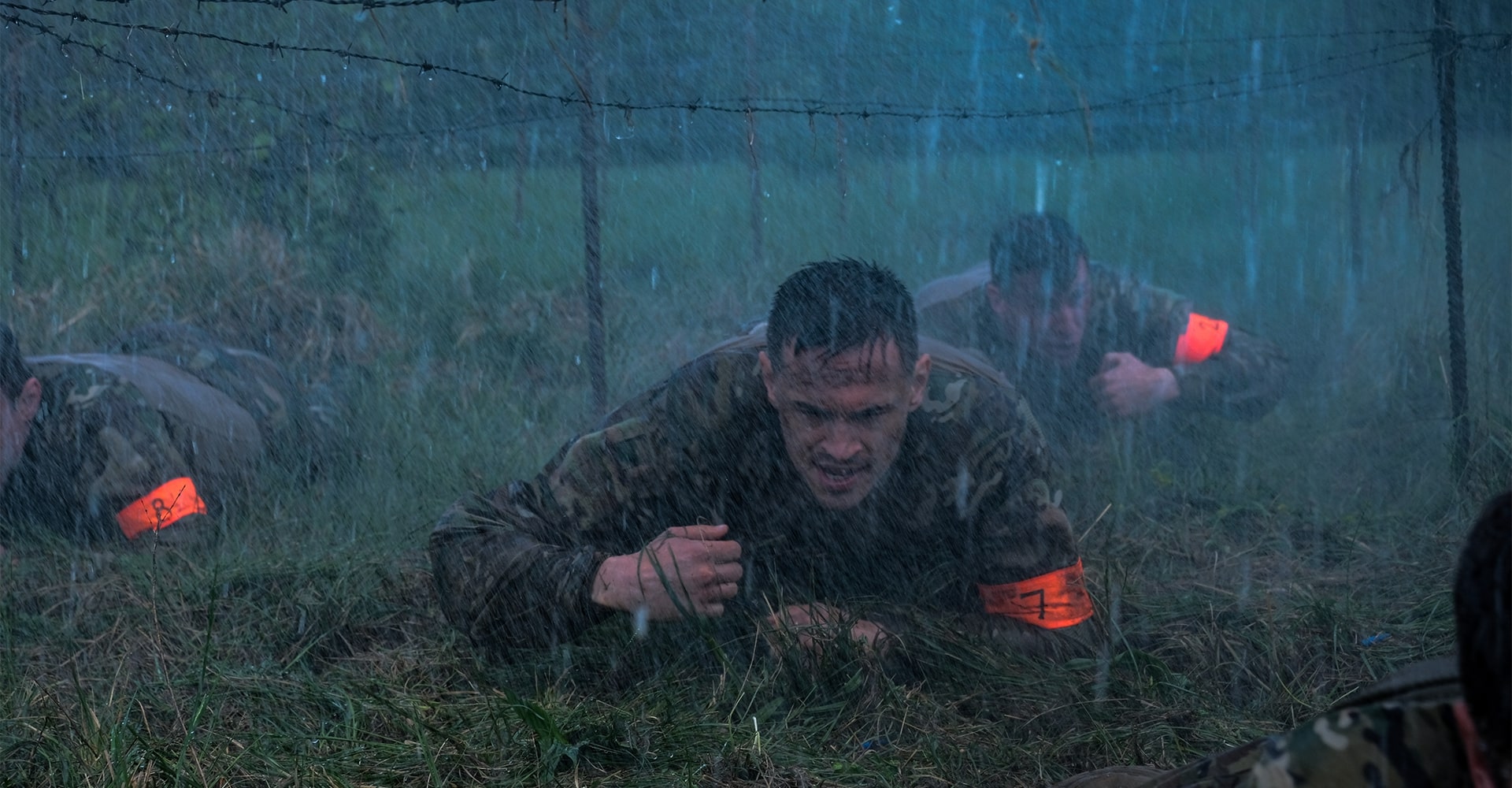
Real-life missions offer a glimpse into what this training prepares them for. One well-known example is the Navy SEAL Team 6 operation that led to the elimination of Osama bin Laden—a mission relied on helicopter insertion, stealth, split-second decision-making, and precision under pressure. Another is the Entebbe raid, where Israeli special forces rescued hostages in Uganda, showcasing the kind of rapid planning and flawless execution that defines these elite units.
These stories—and the training behind them—highlight why special forces remain some of the most capable, reliable, and resilient professionals in modern military operations.
Special Forces: The Ultimate High-Value Tool
Ultimately, each operator is a “tool” in the service of national security, deployed at the tip of the spear. They make split-second decisions that carry significant consequences. Their training, which can cost over 1.5 million euros per individual, ensures they are “combat ready” after three years of intense preparation. Special forces, thus, are more than just elite soldiers—they are the strategic instruments at the disposal of military and political authorities.
When it’s time to go into action, special forces excel in smaller teams, operating under extreme pressure. As Alex from KSK explains, “We’re Olympians. But we wouldn’t exist without a strong support system behind us—like athletes supported by a federation of professionals and amateurs.” Special forces might not be “better” than regular units, but they are at the peak of the pyramid, often acting as the elite edge of a larger organization.
“In the end,” Nemo says, “we are just one component in a much larger machine. Without logistics, intelligence, and conventional units holding the line, our missions wouldn’t be possible. We rely on them just as much as they sometimes rely on us.”
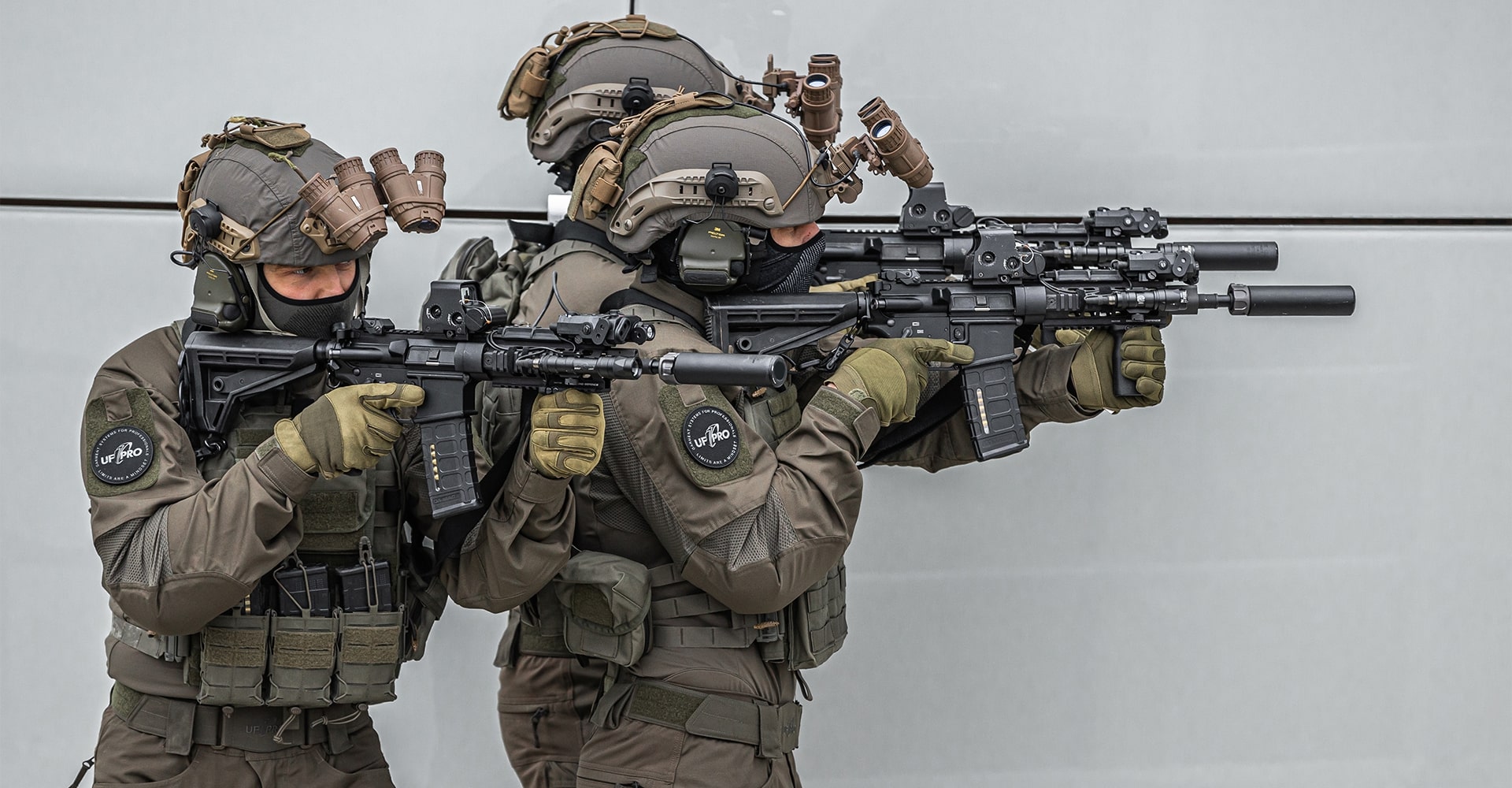
The Broad Spectrum of Special Forces Missions
Special forces are trained to be versatile and perform various roles, often in situations where traditional forces cannot intervene. Their capabilities span a broad range of critical operations:
- Direct Action: Offensive operations that bring force to the enemy.
- Special Reconnaissance: Gathering intelligence for strategic operations.
- Military Assistance: Providing training and support to foreign military units.
- Close Protection: Offering personal security for high-profile individuals.
- Hostage Rescue and Recovery: Safely rescuing hostages in dangerous environments.
- Counterterrorism: Neutralizing terrorist threats before they escalate.
- Unconventional Warfare: Engaging in guerrilla warfare or supporting insurgents.
- Covert Operations: Carrying out missions discreetly and in secrecy.
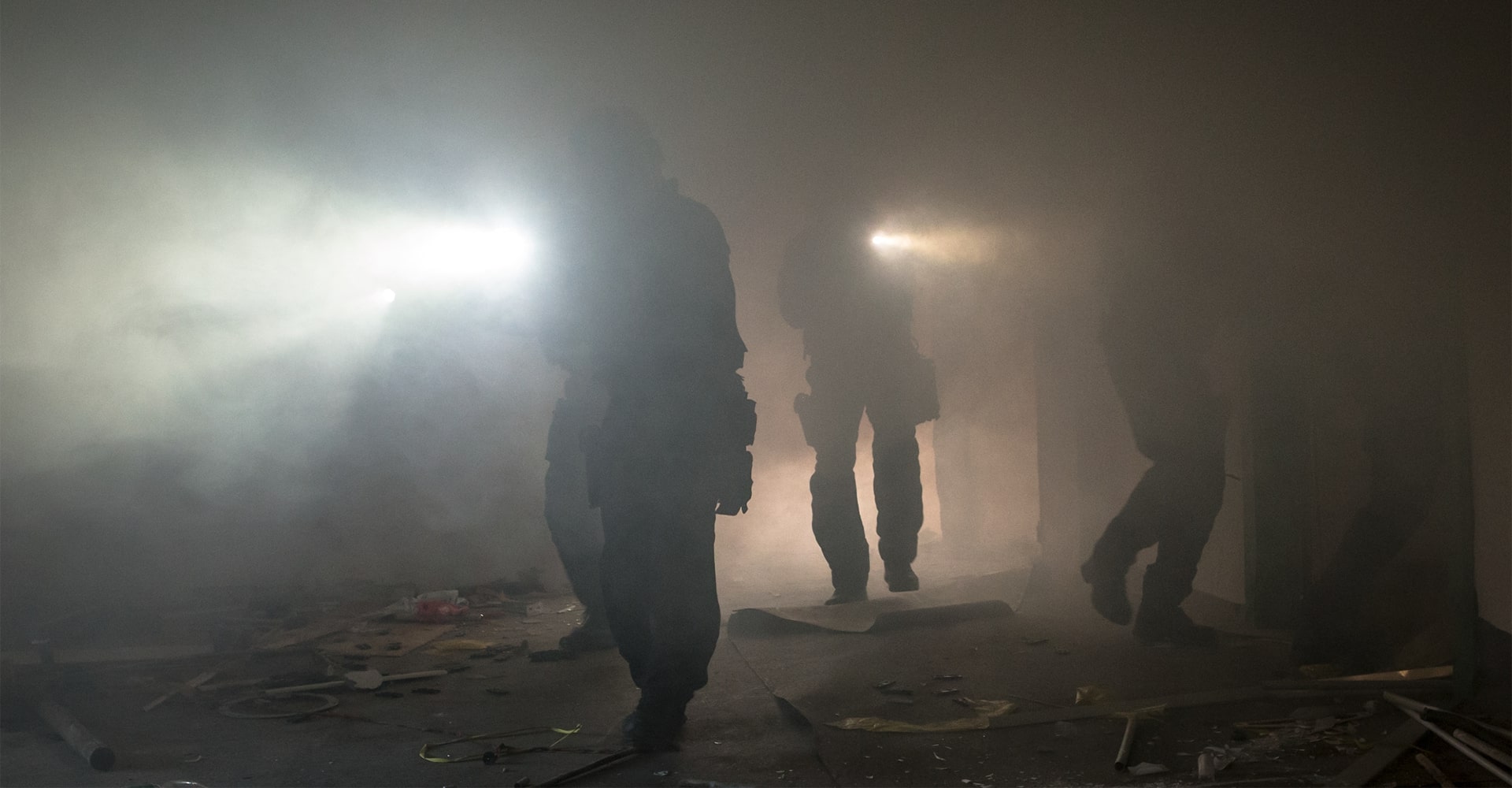
Conclusion: Who Dares, Wins
Special forces are truly unlike traditional military units. Their unique skill sets and elite training make them invaluable tools for tackling critical operations. As the British SAS motto goes, “Who Dares Wins.” Special forces take on the most dangerous and vital missions, often under the highest levels of secrecy. They are the individuals who are always ready when others are not, poised to act where regular units cannot. Their work is grueling, often classified, and always on the front line of national security.
Special forces aren’t forged solely in training camps or on distant battlefields—they’re shaped by a philosophy that transcends uniform and rank. It’s about precision, humility, and resilience in the face of the unpredictable. As Nemo says, “To serve in special forces is to make peace with chaos, and then find a way to win within it.”

